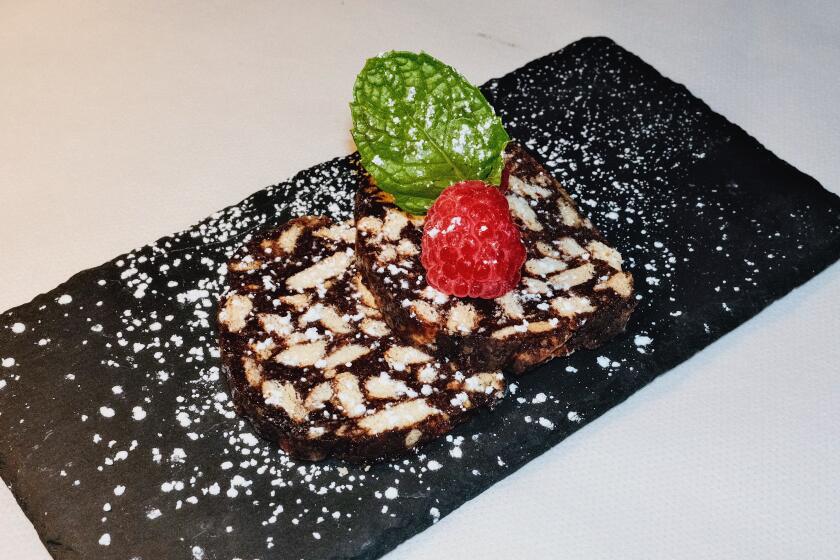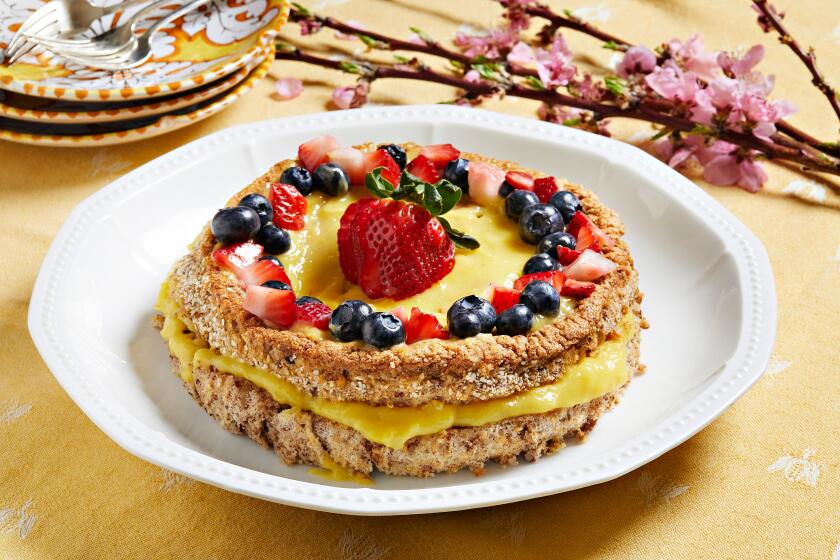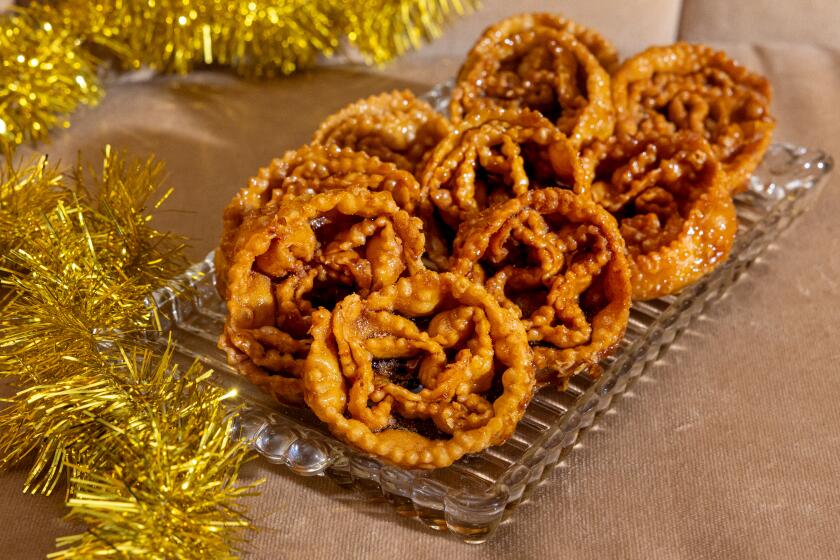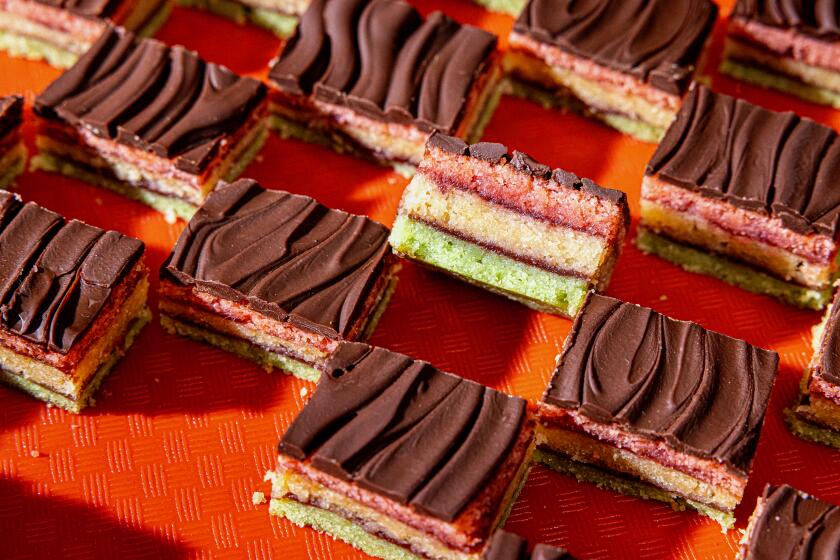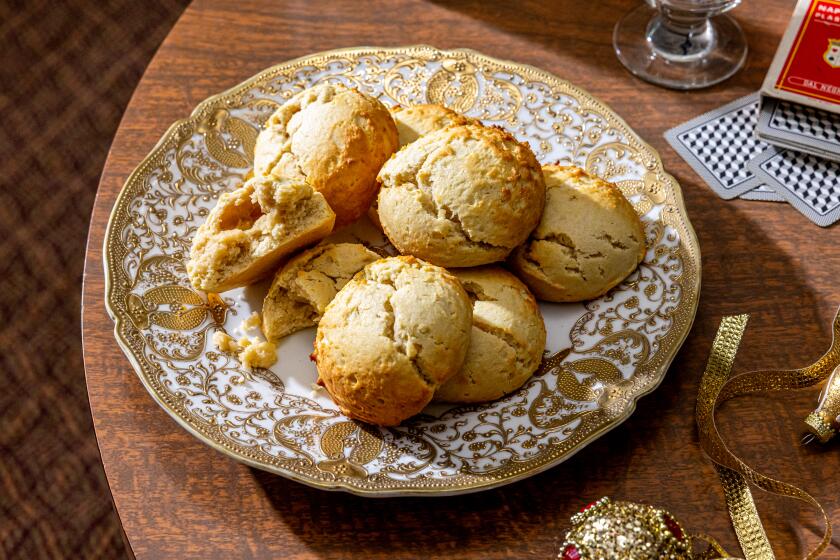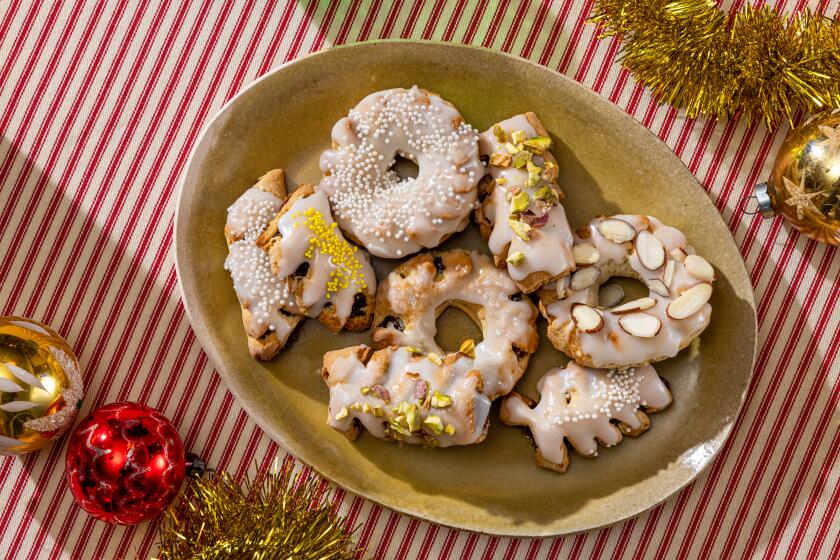Flaky pie dough
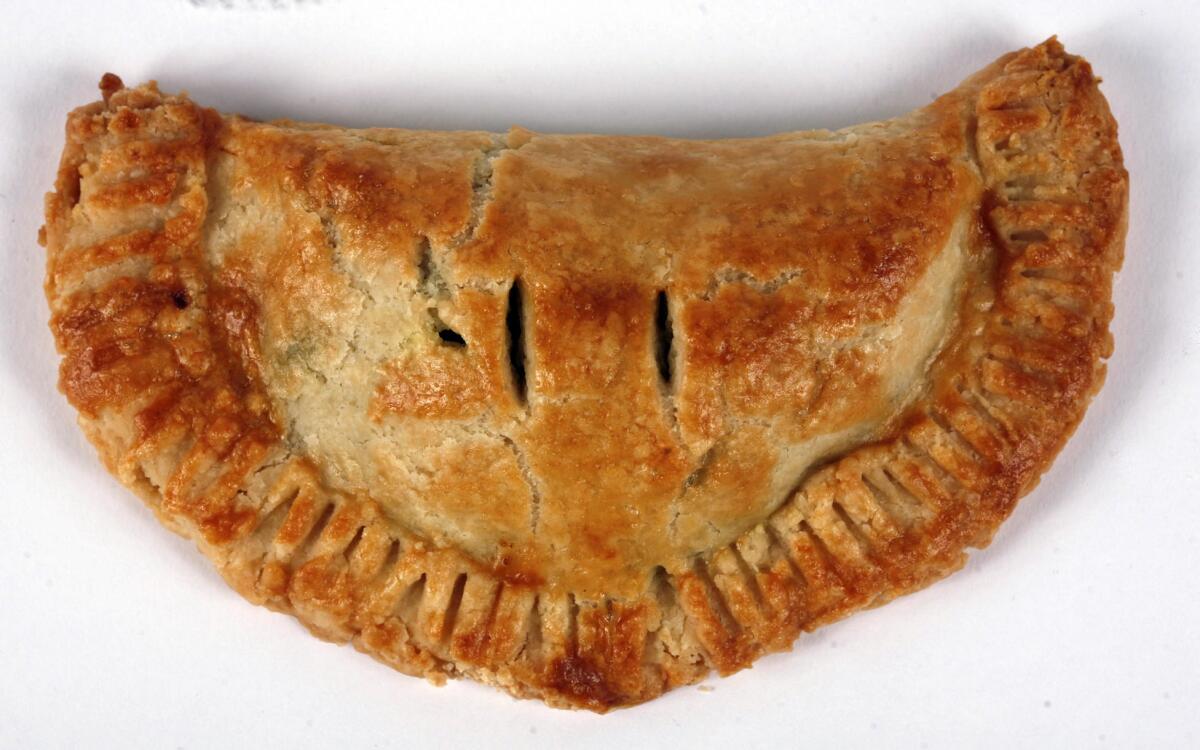
Take everything you love about pie -- that rich, flaky crust cradling your favorite filling -- and downsize it into a compact package. Behold the little wonder that is the hand pie. Convenient, simple and, dare I say it -- terribly cute -- it’s pie’s answer to the cupcake, without the fussy decorations.
Best of all? Just like a cupcake, you don’t have to share.
I’ve been baking a lot of the little guys of late, and I’m totally smitten. Simple to make, there’s not much to a hand pie: Sandwich your filling of choice between a couple of layers of dough and bake until golden brown. Voila.
I love how versatile it is. Sweet or savory, the hand pie is an easy choice, whether you’re planning snacks, a main dish or dessert. Enjoy a batch at home or pack them to go -- no plates or forks required. Short of a sandwich, can a meal get any more portable when you’re on the run?
Simple as it may be, there are ways to make a good hand pie great.
First, consider the crust. The ratio of crust to filling is greater with a hand pie than with a normal slice of pie, and it will be noticed from the first to last bite. You want your crust to make a good impression, with good flavor and texture.
I’ve seen hand pies with short crusts and crunchy crusts; some are even baked with a puff pastry crust, like turnovers. Personally, I prefer a flaky pie crust, rich and buttery yet delicate, practically shattering with every bite.
As for the filling, get creative. Use seasonal fruit as an inspiration for a sweet pie, or riff on a hearty dish -- Irish stew, perhaps, or curried lamb -- when you’re craving something savory. Keep in mind that, because the pies are small, any ingredients that go into the filling should be finely diced so they don’t burst through the dough. Large apple wedges or carrot slices won’t work. Finally, if you cook the filling separately, be sure it has been chilled completely before filling the pies so it doesn’t warm the dough.
Form the pies however you’d like. You can roll out the dough into a large sheet and cut out squares or other creative shapes, re-rolling the scraps to form additional pies. I prefer to portion the dough beforehand, carefully rolling each into a circle to form simple half-moon pies; this eliminates scraps, which need to be re-rolled and tend to be tough and not as attractive.
Once they’re ready to go, the little pies bake in maybe half the time it would take to bake a standard pie -- a whole sheet of them puffed, golden brown and temptingly fragrant. And just like cupcakes, each little pie is a convenient, compact individual serving.
Perfect for portion control. That is, if you can eat just one.
To make the dough using a food processor, pulse together the flour, salt and sugar until thoroughly combined. Add the shortening and pulse until incorporated (the dough will look like moist sand). Add the butter and pulse just until the butter is reduced to pea-sized pieces. Sprinkle the vinegar and 4 tablespoons water over the mixture, and pulse a few times to form the dough, then a few more times just until the dough begins to clump together to form a cohesive dough. If the dough is too crumbly and dry, pulse in additional water, 1 tablespoon at a time. Remove the dough and mold it into a disk roughly 6 to 8 inches in diameter. Cover the disk tightly with plastic wrap and refrigerate at least 2 hours, preferably overnight.
Alternatively, to make the dough by hand, whisk together the flour, salt and sugar in a large bowl. Add the shortening and incorporate using a pastry cutter or fork (the dough will look like moist sand). Cut in the butter just until it is reduced to pea-sized pieces. Sprinkle the vinegar and 4 tablespoons water over the mixture, and stir together until the ingredients are combined to form a dough. Remove the dough to a lightly floured surface and knead a few times until it comes together in a single mass. If the dough is too crumbly and dry, gently work in additional water, 1 tablespoon at a time. Mold the dough into a disk roughly 6 to 8 inches in diameter. Cover the disk tightly with plastic wrap and refrigerate at least 2 hours, preferably overnight.
Get our Cooking newsletter.
Your roundup of inspiring recipes and kitchen tricks.
You may occasionally receive promotional content from the Los Angeles Times.










